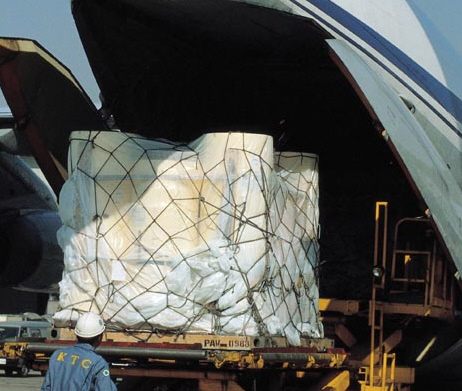 The U.S. House approved a 279-page bill enacting several of the Sept. 11 commissions unfulfilled recommendations to prevent terrorist attacks. While most knew the day would come to enact stricter screening of cargo, there will be bumps in the road to full compliance. "There isnt a person out there who disagrees that cargo security requires enhancing. The legislative changes will bring us closer to closing the door on potential and real abuse by terrorist groups," states Will McGuire, President and CEO of the New York-based international aviation security firm Global Security Associates, LLC (GSA). Currently there are a handful of airports that embarked on meeting stricter standards prior to the HR 1 Bill being passed. As the deadline approaches in 2009 all airlines will be challenged to meet the newly enacted legislation and will have to embrace new methods of training for this heightened security protocol. The U.S. House approved a 279-page bill enacting several of the Sept. 11 commissions unfulfilled recommendations to prevent terrorist attacks. While most knew the day would come to enact stricter screening of cargo, there will be bumps in the road to full compliance. "There isnt a person out there who disagrees that cargo security requires enhancing. The legislative changes will bring us closer to closing the door on potential and real abuse by terrorist groups," states Will McGuire, President and CEO of the New York-based international aviation security firm Global Security Associates, LLC (GSA). Currently there are a handful of airports that embarked on meeting stricter standards prior to the HR 1 Bill being passed. As the deadline approaches in 2009 all airlines will be challenged to meet the newly enacted legislation and will have to embrace new methods of training for this heightened security protocol.
With the exception of a handful of airports, inspections are now done on only a small portion of cargo on passenger planes. According to recent media reports, U.S. passenger planes account for about 6 billion pounds of cargo shipped annually. It is the method of choice due to speed and efficiency. Cargo also subsidizes routes that are not profitable otherwise. As an example, another GSA division provides high-security courier services for priceless works of art and other valuables such as newly minted currency. "We had an instance prior to this where we were transporting and guarding a US$40 million painting that took three days to pack. An airport screener cannot just approach that cargo with a hammer and screwdriver to peak inside. Nor can screeners open a specially packed carton of newly minted U.S. currency. This is going to take training and dialog," says McGuire.
Currently, GSA training involves working with clients to understand how the legal requirements impact current operations. How must current procedures change in order to maintain optimal business operations? "We will not work initially on a broad stroke approach. This would significantly impact the airlines operations. Working with a risk-based management approach vulnerabilities will be exposed as we work together towards full compliance," McGuire and Anderes suggest.
For more info., contact to email swm@infothe.com
ⓒ2007 www.SecurityWorldmag.com. All rights reserved. |



